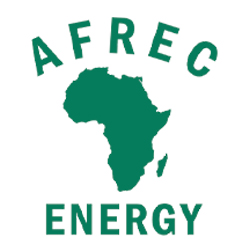
Efficient Lighting and
Appliances Program

In order to reach SDG 7 to ensure access to affordable, reliable sustainable and modern energy for all, energy efficiency (EE) can be a powerful lever in terms of price (cheaper in terms of demand and supply through avoided investments in infrastructures), time (faster), scale (cross-sectorial) and GHG emissions (reduced significantly). While global energy intensity is improving, it is not sufficient to reach the SDG goals whereby an average annual global energy intensity declines of 2.6% between 2016-2030 is needed. According to the Energy Efficiency Market Report 2016 carried out by the International Energy Agency (IEA), 70% of the world’s energy use occurs outside of EE requirements even though over the past 30 years, the implementation of energy efficiency standards and technologies accounted for most of the decrease in energy use per unit of GDP in OECD countries. Besides, nearly three billion people around the world burn wood, charcoal, animal dung, crop residue or coal in open fires or in inefficient stoves for daily cooking and heating. This reliance on inefficient cook stoves and fuels leads to a wide variety of hazards including environmental degradation, air pollution, and climate change. In fact, black carbon, which results from incomplete combustion, is estimated to contribute the equivalent of 25% to 50% of carbon dioxide warming globally, and residential solid fuel burning accounts for up to 25% of global black carbon emissions, about 84% of which is from households in developing countries.
Under the leadership of ECREEE with technical assistance of ECOSHAM, the energy efficiency program is place to support member states by raising awareness, providing capacity building and training to stakeholders to catalyze investment in improved cook stoves and energy efficient appliances.

The main objective is to operationalize the Sustainable Energy For All Action Agenda in ECOWAS member states by catalyzing investment in improved cook stoves and energy efficient appliances. Specific objectives are:
- Formulate and implement National platform to foster nexus issues.
- Promote the use of energy efficient appliances.
- Promote quality assurance.
- Procure and install lighting testing laboratory.

Completed
- National platform set up.
- Training materials developed.
- Trainings conducted in the Gambia.
- Awareness raising conducted in the Gambia on EE lighting and appliances.
- National Quality Assurance Committee developed on EE Solutions.
- EE testing facilities procured and installed in the Gambia.
- Regional Data Base for Electrical Appliances Products Registration https://ecowasprs.com/prslogin
Ongoing
- Commission of testing facility in the Gambia
- Development of project document on the decarbonization in Ecowas member states through the Promotion of inclusive, environmentally sound and low-carbon development
Under Preparation
- Preparation of project document for the duplication of experiences in member states

- Increased integration of energy issues into policies, programmes and projects into other sectors. The component aims at integrating in a more systematic manner energy into key projects.
- Increased use of efficient lights and other EE appliances. The component aims at supporting to the dissemination and adoption of EE appliances incl. LED lighting, Efficient Air conditioning, Solar Water Heating, across member states.
- Increased national capacity to uptake energy efficient appliances and clean cooking solutions in compliance with quality standards.
- Monitoring of results and evaluation.

Related News
The Gambia adopts ECOWAS Approved Minimum Energy Performance Standards and train relevant public and private stakeholders on Energy Efficiency Lighting
ECREEE Banjul, The Gambia 18th March 2022 The National Electrotechnical Committee (NEC) of the Gambia – a body established to...
ECREEE ORGANIZES WORKSHOP TARGETING ENERGY EFFICIENCY IN ECOWAS
ECREEE, in collaboration with partners organizes a virtual workshop on Multi-Country Regional Project on the theme leapfrogging to Energy-Efficient and Climate-Friendly Lighting, Refrigerators...
Climate Services for the Energy Sector – Towards Sustainable Energy Planning in the ECOWAS region
From the 9th to the 11th of July 2019, the ECREEE secretariat in Praia Cabo Verde hosted a consortium of...
AN HISTORIC STEP TOWARDS A SUSTAINABLE ENERGY FUTURE
Praia – February 8th, 2019 – The Prime-Minister of the Republic of Cabo Verde, the Executive Director of ECREEE and...
New Studies Released on Lighting
The United Nations Environment Programme (UNEP) launched a set of three studies on efficient lighting, with a special emphasis in...










